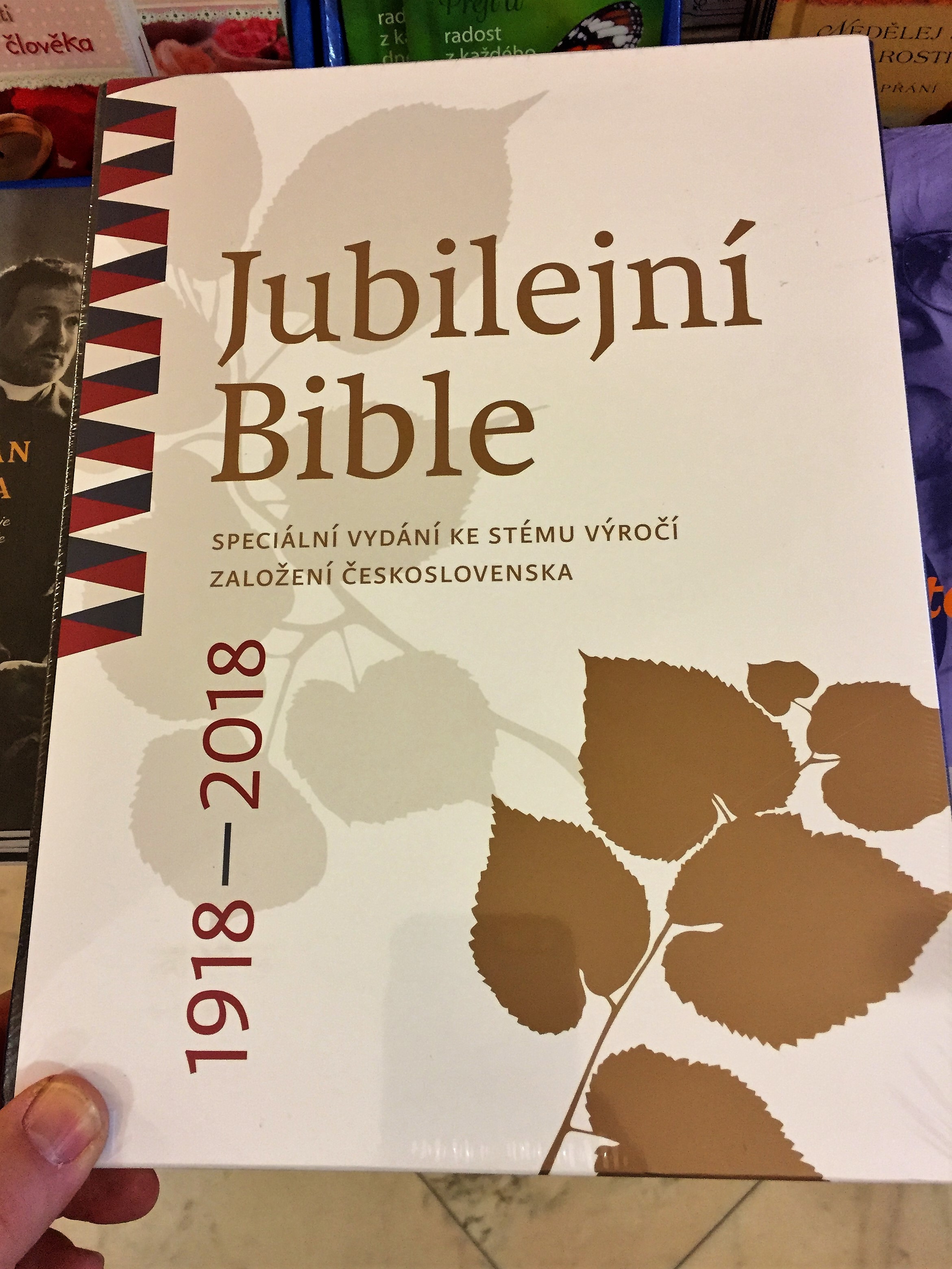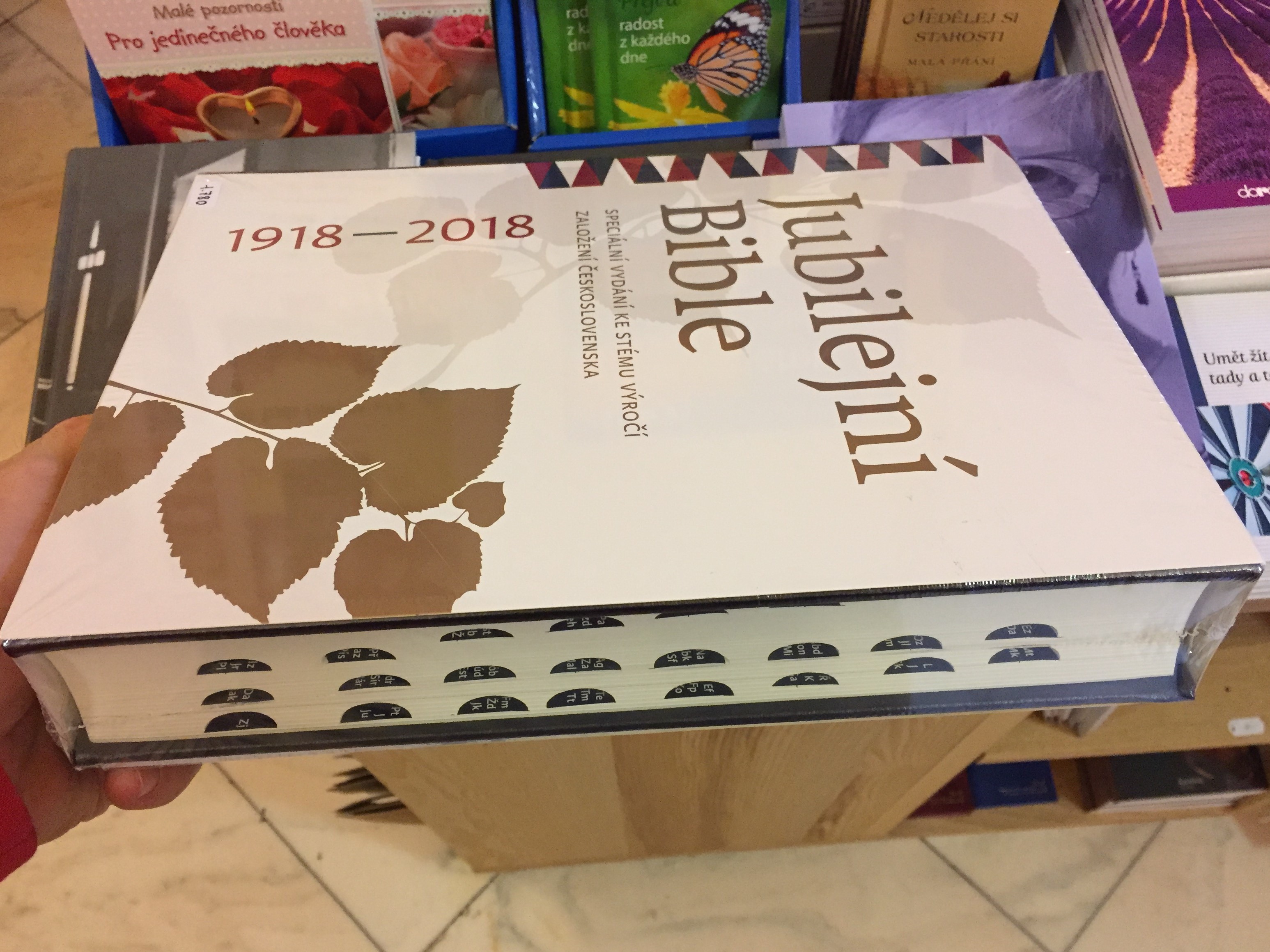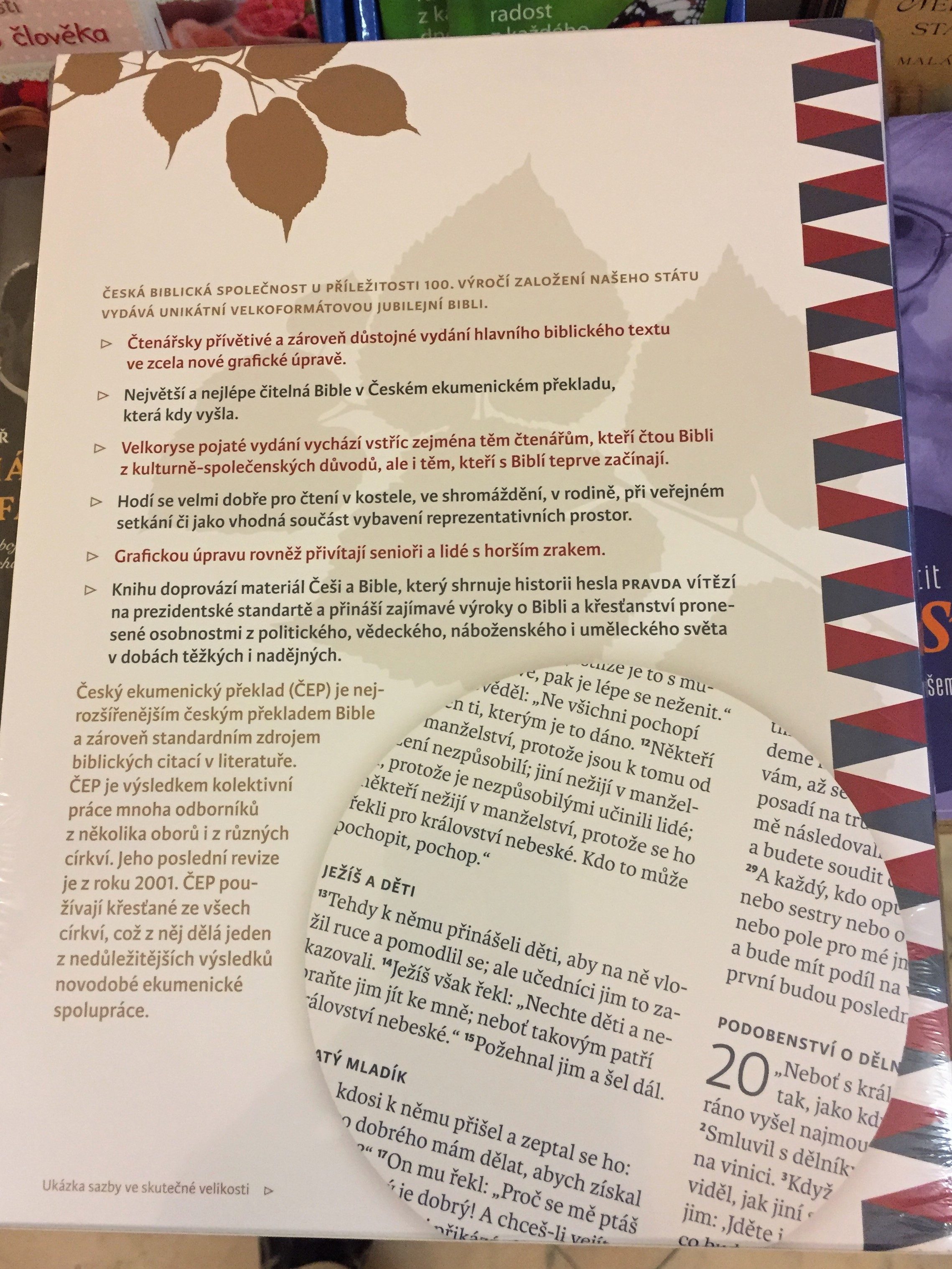Description
Czech Jubilee Bible 1918-2018 / Jubilejní Bible, ČEP DT, rodinná 1108
- Large Family Bible in the Czech Ecumenical Translation
- Pulpit Bible with Thumb Index
- Česká biblická společnost
This is the largest and most readable Bible in the Czech Ecumenical Translation, suitable for reading in a church, in a gathering or in a family.
Vydání včetně deuterokanonických knih / Publication includes deuterocanonic books!
- Hardcover 2018
- ISBN 9788075450760 / 978-8075450760
- Formát 210 x 277
- Počet stran/Pages 1,504
- Sazba dvousloupcová barva ocelově modrá
- Výrobce/Publisher: Česká biblická společnost
- ISBN-10: 8075450760
- ISBN-13: 978-8075450760
- Product Dimensions: 8.3 x 10.9 inches
Overview
A unique large-format edition on the occasion of the 100th anniversary of the founding of our state in a completely new graphic design. It is the largest and most readable Bible in the Czech ecumenical translation, suitable for reading in church, in congregation or in the family. The book is accompanied by the material Czechs and the Bible, which summarizes the history of the slogan TRUTH VICTORIOUS on the presidential standard and brings interesting statements about the Bible and Christianity, which were made by personalities from the political, scientific, religious and artistic worlds in both difficult and hopeful times.
The Czech Ecumenical Translation, ČEP (often called just the Ecumenical Translation), is a modern Czech translation of the Bible, made in the years 1961–1979 and recognized by all Czech Christian churches.
The idea of a joint interdenominational Czech translation of the Bible began to emerge already during the Second World War. The actual translation was started in 1961 under the leadership and at the initiative of the Evangelical Faculty of Theology professors Miloš Bič (Old Testament group) and J.B. Souček (New Testament group). The translation involved two teams of experts who also collaborated with consultants from the United Bible Societies. The ecumenical translation gained ground very quickly; the Catholic Church recommended it for use through Cardinal Tomášek in 1985.
In 1970, the first part of the translation, the book of Genesis, was published. In 1973 the four Gospels, in 1975 the Psalms, in 1978 the second part of the New Testament and in 1979 finally the entire Bible. It is published in a double version - including the deuterocanonical books (according to the Catholic and Orthodox canon) and without them.
This translation is an initiative of the Protestant churches, however, it is recognized and used by all Christian denominations including Orthodoxy and the Roman Catholic Church, which was also its purpose. The text is taken directly from the original languages (Hebrew, Aramaic, Greek) into modern, comprehensible Czech, while preserving the biblical diction and style.
The Czech ecumenical translation seems to be the most cited in modern literature, next to the King's Bible it is one of the most widespread and is also considered a standard source of biblical citations.
Copyright to the translation belongs to the Czech Bible Society.
Unikátní velkoformátové vydání u příležitosti 100. výročí založení našeho státu ve zcela nové grafické úpravě. Jedná se o největší a nejlépe čitelnou Bibli v Českém ekumenickém překladu, vhodnou pro čtení v kostele, ve shromáždění či v rodině. Knihu doprovází materiál Češi a Bible, který shrnuje historii hesla PRAVDA VÍTĚZÍ na prezidentské standartě a přináší zajímavé výroky o Bibli a křesťanství, které pronesly osobnosti z politického, vědeckého, náboženského i uměleckého světa v dobách těžkých i nadějných.
Český ekumenický překlad, ČEP (často nazýván pouze ekumenický překlad), je moderní český překlad Bible, pořízený v letech 1961–1979 a uznávaný všemi českými křesťanskými církvemi.
Myšlenka společného mezikonfesního českého překladu Bible začala vznikat již za 2. světové války. Vlastní překlad byl zahájen v roce 1961 pod vedením a z iniciativy profesorů Evangelické teologické fakulty UK Miloše Biče (starozákonní skupina) a J. B. Součka (novozákonní skupina). Na překladu se podílely dva týmy odborníků, kteří spolupracovali i s konzultanty ze Spojených biblických společností. Ekumenický překlad se prosadil velmi rychle; katolická církev jej doporučila k užívání prostřednictvím kardinála Tomáška v roce 1985.
V roce 1970 byla publikována první část překladu, kniha Genesis. V roce 1973 čtyři evangelia, v roce 1975 žalmy, v roce 1978 druhá část Nového zákona a v roce 1979 konečně celá Bible. Vychází ve dvojí verzi - včetně deuterokanonických knih (podle katolického a pravoslavného kánonu) a bez nich.
Tento překlad vychází z iniciativy protestantských církví, nicméně je uznáván a používán všemi křesťanskými denominacemi včetně pravoslaví a římskokatolické církve, což bylo také jeho účelem. Text je pořízen přímo z originálních jazyků (hebrejština, aramejština, řečtina) do moderní, srozumitelné češtiny, přičemž zachovává biblickou dikci a styl.
Český ekumenický překlad je, zdá se, nejcitovanější v moderní literatuře, vedle Bible kralické patří k nejrozšířenějším a platí také za standardní zdroj biblických citací.
Autorská práva k překladu vlastní Česká biblická společnost.























